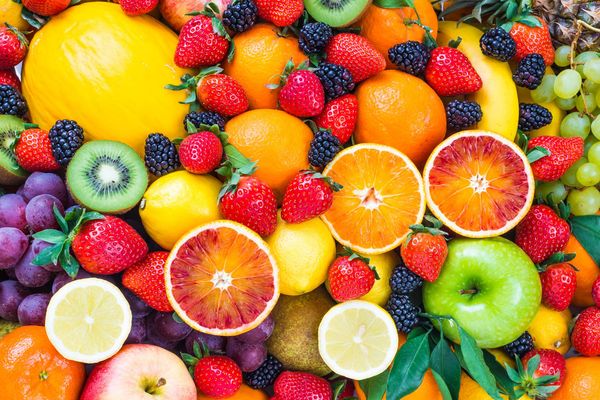

Beth Battaglino, RN-C, CEO of HealthyWomen
Beth brings a unique combination of sharp business expertise and women's health insight to her leadership of the organization. Beth has worked in the health care industry for more than 25 years helping to define and drive public education programs on a broad range of women's health issues. She launched and has expanded the HealthyWomen.org brand. As a result of her leadership, HealthyWomen was recognized as one of the top 100 women's health web sites by Forbes for three consecutive years, and was recognized by Oprah magazine as one of the top women's health web sites. HealthyWomen now connects to millions of women across the country through its wide program distribution and innovative use of technology.
Beth is responsible for the business development and strategic positioning of HealthyWomen. She creates partnerships with key health care professionals and consumer groups to provide strategic, engaging and informative award-winning programs. She serves as the organization's chief spokesperson, regularly participating in corporate, non-profit, community and media events. She also is a practicing nurse in maternal child health at Riverview Medical Center- Hackensack Meridian Health, in Red Bank, NJ.
In addition to her nursing degree, Beth holds degrees in political science, business and public administration from Marymount University.
To stay sane, she loves to run and compete in road races. She enjoys skiing and sailing with her husband and young son, and welcoming new babies into the world.
Full BioLearn about our editorial policies
Medically Reviewed
It began as National Nutrition Week in 1973, launched with a presidential proclamation as a way to reach out to the public with healthy nutrition messages. As its popularity grew, in 1980, National Nutrition Week morphed into National Nutrition Month.
And since March is the month earmarked to spread the word on healthy eating, it's a good opportunity to remind ourselves not only of what's healthy and good but also what foods to avoid.
A 2011 "Food & Health Survey" from the International Food Information Council Foundation studied Americans' insights on the importance of food safety, nutrition and health-related topics. It found that, "Americans are evaluating their food choices with a more critical eye, taking into consideration where their food comes from; how it was produced; its safety and reliability; food's overall healthfulness; and its cost."
That all sounds promising—until you learn that the U.S. Centers for Disease Control and Prevention reports more than one-third of U.S. adults (78.6 million people) are obese, creating an estimated annual medical cost of $147 billion in 2008 U.S. dollars.
So, where's the disconnect? Might be that many of us are making poor food choices. Sure, we all "deserve" or "need" the occasional unhealthy food indulgence—after all, it's all about moderation—but these unhealthy foods will take a big bite out of your nutrition budget.
1. Soda and Sweet Sips
Plenty of sugar here—and soda is only part of the problem. Sweetened teas and some energy drinks can pack up to 50 grams of sugar in each 16-ounce bottle. You get plenty of refined carbs without any nutrients. The American Heart Association sets the maximum amount of added sugars per day at 37.5 grams (or 9 teaspoons and 150 calories) for men; and 25 grams (or 6 teaspoons and 100 calories) for women.
2. Cakes, Pies, Cupcakes and Cookies
They may taste good, but underneath that taste lies the reason for it: refined flour, added sugars, trans fats and saturated fat. (An interesting note on trans fat: While the U.S. Food and Drug Administration has ordered manufacturers to remove all trans fat from their products, they have three years to comply. In the meantime, you'll want to avoid foods loaded with trans fats. Trans fats are used to enhance the taste and texture of foods, and make them last longer; but they increase your risk for many chronic diseases. A product can list 0 grams of trans fat on its label if there's less than 0.5 grams—but even that adds up over time.)
3. Breakfast Sandwiches
If you make your own at home, you can use healthy ingredients, but don't assume the frozen varieties are similar. Typically they contain at least one gram of trans fat, plus they are packed with sodium, low in fiber and high in fat. Read what Consumer Reports has to say here.
4. Movie Theater Popcorn
There's nothing wrong with popcorn; in fact, it's a healthy whole grain that offers fiber and antioxidants, to boot. But, there's popcorn—and there's popcorn. If you're heading out to the movies, beware: A bucket of popcorn can contain as many calories as a hamburger plus a Quarter Pounder AND a Big Mac at McDonald's, reports the Center for Science in the Public Interest. It adds that the popcorn is "essentially fried in one to three days' worth of saturated fat," depending on the size you choose. And what about those buttery toppings? As if you didn't already get enough, these will add 130 calories to a small popcorn, 200 to a medium and 260 to a large, reports movie chain Regal.
5. Canned Soup
It might come in handy if you're pressed for time, but unless you find a tasty variety that's low in salt (and there are some out there), you're out of luck on the health front. An average cup of a popular-brand soup, for instance, packs over 800 milligrams of sodium. Keep in mind that's an "average cup." Most people consume the entire can, which brings the sodium to over 2,000 milligrams—more than you should consume in an entire day.
You might be interested in





